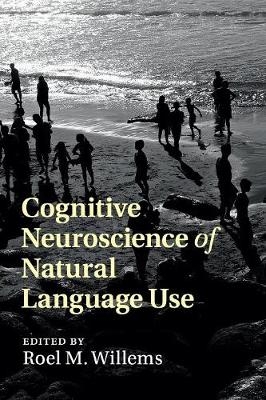
Cognitive Neuroscience of Natural Language Use
Cambridge University Press (Verlag)
978-1-108-40268-2 (ISBN)
When we think of everyday language use, the first things that come to mind include colloquial conversations, reading and writing e-mails, sending text messages or reading a book. But can we study the brain basis of language as we use it in our daily lives? As a topic of study, the cognitive neuroscience of language is far removed from these language-in-use examples. However, recent developments in research and technology have made studying the neural underpinnings of naturally occurring language much more feasible. In this book, a range of international experts provide a state-of-the-art overview of current approaches to making the cognitive neuroscience of language more 'natural' and closer to language use as it occurs in real life. The chapters explore topics including discourse comprehension, the study of dialogue, literature comprehension and the insights gained from looking at natural speech in neuropsychology.
Roel M. Willems is a senior researcher at the Donders Institute for Brain Cognition and Behaviour and Max Planck Institute for Psycholinguistics, Nijmegen, The Netherlands.
1. Cognitive neuroscience of natural language use: introduction Roel M. Willems; 2. fMRI methods for studying the neurobiology of language under naturalistic conditions Michael Andric and Steven L. Small; 3. Why study connected speech production? Sharon Ash and Murray Grossman; 4. Situation models in naturalistic comprehension Christopher A. Kurby and Jeffrey M. Zacks; 5. Language comprehension in rich non-linguistic contexts: combining eye tracking and event related brain potentials Pia Knoeferle; 6. The NOLB model. A model of the natural organization of language and the brain Jeremy I. Skipper; 7. Towards a neurocognitive poetics model of literary reading Arthur M. Jacobs; 8. Putting Broca's region into context - fMRI evidence for a role in predictive language processing Line Burholt Kristensen and Mikkel Wallentin; 9. Towards a multi-brain perspective on communication in dialogue Anna K. Kuhlen, Carsten Allefeld, Silke Anders and John-Dylan Haynes; 10. On the generation of shared symbols Arjen Stolk, Mark Blokpoel, Iris van Rooij and Ivan Toni; 11. What are naturalistic comprehension paradigms teaching us about language? Uri Hasson and Giovanna Egidi.
| Erscheinungsdatum | 07.06.2017 |
|---|---|
| Zusatzinfo | Worked examples or Exercises; 2 Tables, black and white; 20 Plates, color; 6 Line drawings, black and white |
| Verlagsort | Cambridge |
| Sprache | englisch |
| Maße | 152 x 230 mm |
| Gewicht | 450 g |
| Themenwelt | Geisteswissenschaften ► Psychologie ► Allgemeine Psychologie |
| Geisteswissenschaften ► Psychologie ► Biopsychologie / Neurowissenschaften | |
| Geisteswissenschaften ► Psychologie ► Pädagogische Psychologie | |
| Geisteswissenschaften ► Psychologie ► Verhaltenstherapie | |
| Geisteswissenschaften ► Sprach- / Literaturwissenschaft ► Sprachwissenschaft | |
| Informatik ► Theorie / Studium ► Künstliche Intelligenz / Robotik | |
| Naturwissenschaften ► Biologie ► Humanbiologie | |
| Naturwissenschaften ► Biologie ► Zoologie | |
| Sozialwissenschaften ► Pädagogik | |
| Sozialwissenschaften ► Soziologie | |
| ISBN-10 | 1-108-40268-2 / 1108402682 |
| ISBN-13 | 978-1-108-40268-2 / 9781108402682 |
| Zustand | Neuware |
| Informationen gemäß Produktsicherheitsverordnung (GPSR) | |
| Haben Sie eine Frage zum Produkt? |
aus dem Bereich


